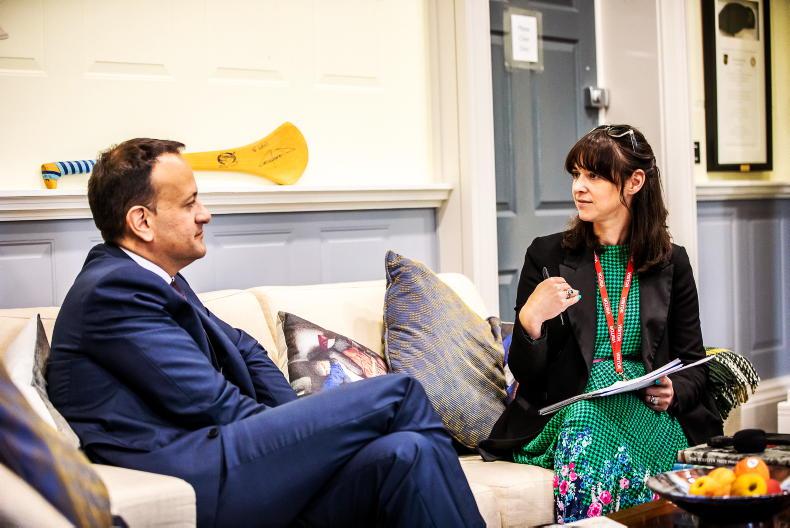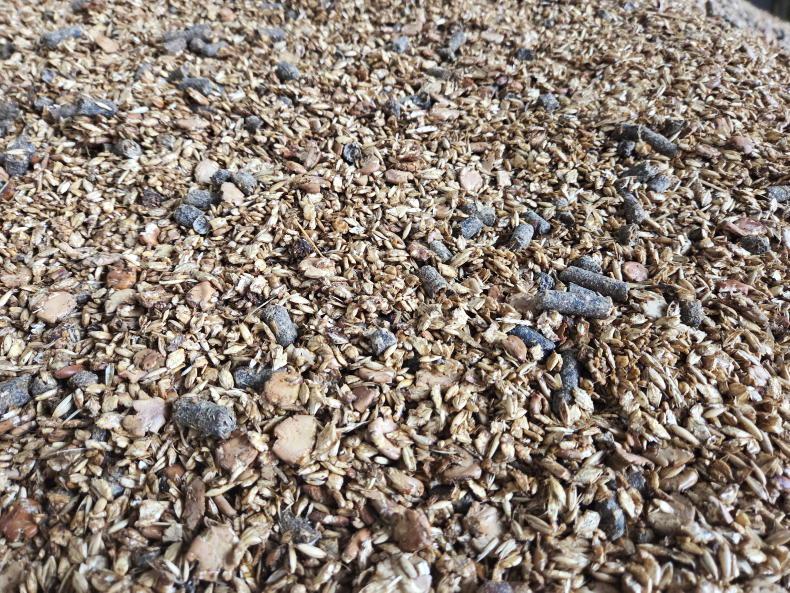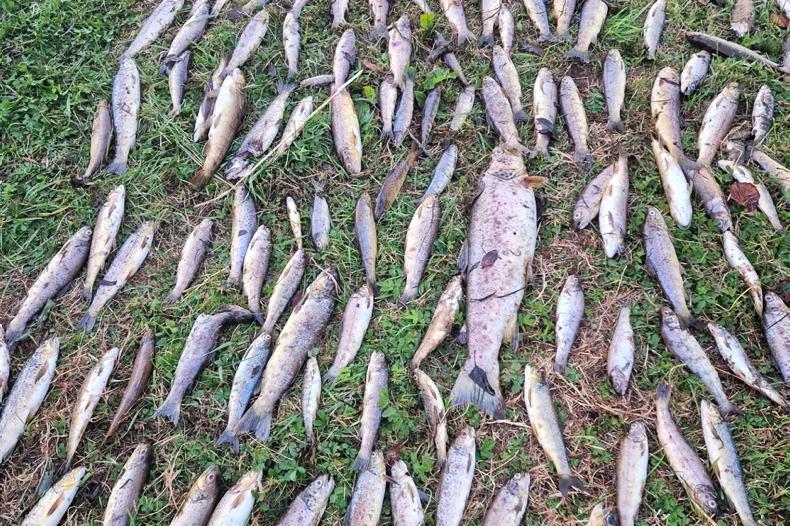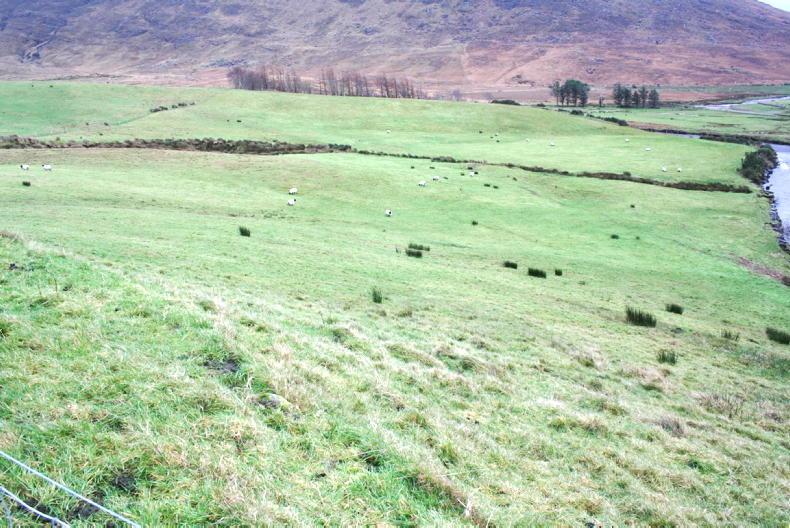On a radio panel last Sunday morning, a fellow contributor claimed that 22% of global emissions come from beef production.
The accurate figure, from the FAO, is circa 14.5% and this is total livestock.
But let’s be honest, there are so many emissions numbers thrown about, it’s very very confusing.
I dread to think how confused the ordinary consumer must be.
In preparation for that radio slot, I walked into the shop up the road from RTÉ in Donnybrook for a coffee and to scan the front pages of the Sunday papers.
Depending on the particular paper one looked at, you could have read that the emissions reduction target would eventually land on 22%,
24% or 28%.
It is very disappointing that while Ministers Ryan and McConalogue have been hammering out that emissions target number (still unknown as I write), farming has also been taking a hammering.
Various environmental commentators highlighted how agriculture is the only sector actively lobbying politicians on their target.
Even if this were true, I would argue that this activity should be welcomed as it demonstrates active engagement with the process and real responsibility in terms of delivery of that target.
“Are you/were you nervous?” This question is often asked of someone before or after a performance, an exam, or a major life event.
If the event is important to the person, in that they care about how they will perform or they care about the outcome, this feeling of nervousness is natural.
In fact, this nervous energy helps the body to do its best. Stress hormones such as adrenaline can actually help us focus.
Currently, farmers across the country are both nervous and focused. Nervous as to how the emissions reduction target – being decided in lofty offices a long way from their farms – will impact on them and focused on what is possible, what is achievable and what will happen next.
I doubt that the environmental lobby groups would prefer farmers to sign up blithely, while intending to do absolutely nothing.
Farmers are pointing to what is achievable right now. Getting on with that and making strides in the right direction must surely be recognised as a better position for the environment.
It could perhaps be considered that the silence from other sectors is a reflection of the acceptance that their targets are impossible and not worth fighting over.
I spoke about this quandary in an interview with the Tánaiste last week P8-9.
He admitted that, just like agriculture, many of the technologies needed to decrease emissions from his own Department (Enterprise Trade and Employment) do not yet exist.

Tánaiste Leo Varadkar interviewed by Amii McKeever in his office in governmenat buildings. \ Philip Doyle
He said: “I think we have to make an allowance for that. You set a target, it’s ambitious, you do everything reasonable to try and achieve it but if it’s not possible to achieve it, and people make their best efforts to do so, there shouldn’t be a penalty.”
Although I would like to take that as gospel, I wouldn’t rely on it. Farmers know that better than anyone and so the argument to get a reachable and achievable target will continue.
A side note on the lofty offices, I understand that the negotiations are taking place in the office of Environment Minister Eamon Ryan. This office was once the office of Charles J Haughey.
In 1990, it was Charlie, as Taoiseach, that fast-tracked the establishment of the Environmental Protection Agency (EPA), despite the opposition of many who felt it would hamper Ireland’s economic development. If those walls could talk!
On a radio panel last Sunday morning, a fellow contributor claimed that 22% of global emissions come from beef production.
The accurate figure, from the FAO, is circa 14.5% and this is total livestock.
But let’s be honest, there are so many emissions numbers thrown about, it’s very very confusing.
I dread to think how confused the ordinary consumer must be.
In preparation for that radio slot, I walked into the shop up the road from RTÉ in Donnybrook for a coffee and to scan the front pages of the Sunday papers.
Depending on the particular paper one looked at, you could have read that the emissions reduction target would eventually land on 22%,
24% or 28%.
It is very disappointing that while Ministers Ryan and McConalogue have been hammering out that emissions target number (still unknown as I write), farming has also been taking a hammering.
Various environmental commentators highlighted how agriculture is the only sector actively lobbying politicians on their target.
Even if this were true, I would argue that this activity should be welcomed as it demonstrates active engagement with the process and real responsibility in terms of delivery of that target.
“Are you/were you nervous?” This question is often asked of someone before or after a performance, an exam, or a major life event.
If the event is important to the person, in that they care about how they will perform or they care about the outcome, this feeling of nervousness is natural.
In fact, this nervous energy helps the body to do its best. Stress hormones such as adrenaline can actually help us focus.
Currently, farmers across the country are both nervous and focused. Nervous as to how the emissions reduction target – being decided in lofty offices a long way from their farms – will impact on them and focused on what is possible, what is achievable and what will happen next.
I doubt that the environmental lobby groups would prefer farmers to sign up blithely, while intending to do absolutely nothing.
Farmers are pointing to what is achievable right now. Getting on with that and making strides in the right direction must surely be recognised as a better position for the environment.
It could perhaps be considered that the silence from other sectors is a reflection of the acceptance that their targets are impossible and not worth fighting over.
I spoke about this quandary in an interview with the Tánaiste last week P8-9.
He admitted that, just like agriculture, many of the technologies needed to decrease emissions from his own Department (Enterprise Trade and Employment) do not yet exist.

Tánaiste Leo Varadkar interviewed by Amii McKeever in his office in governmenat buildings. \ Philip Doyle
He said: “I think we have to make an allowance for that. You set a target, it’s ambitious, you do everything reasonable to try and achieve it but if it’s not possible to achieve it, and people make their best efforts to do so, there shouldn’t be a penalty.”
Although I would like to take that as gospel, I wouldn’t rely on it. Farmers know that better than anyone and so the argument to get a reachable and achievable target will continue.
A side note on the lofty offices, I understand that the negotiations are taking place in the office of Environment Minister Eamon Ryan. This office was once the office of Charles J Haughey.
In 1990, it was Charlie, as Taoiseach, that fast-tracked the establishment of the Environmental Protection Agency (EPA), despite the opposition of many who felt it would hamper Ireland’s economic development. If those walls could talk!










SHARING OPTIONS